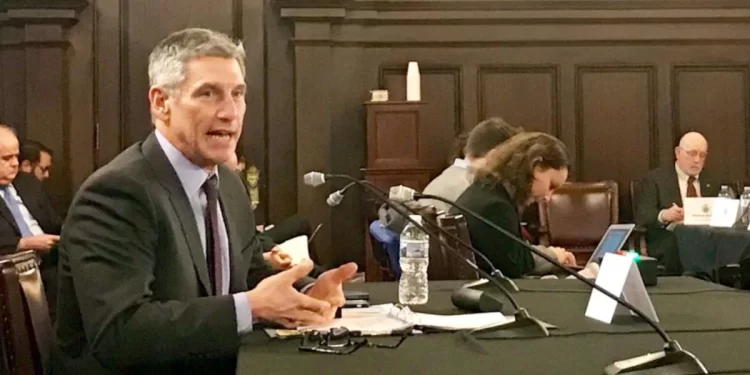By Anthony Hennen | The Center Square
(The Center Square) – A joint hearing of the House Appropriation and Education committees focused on the Pennsylvania State System of Higher Education and the trouble of the state’s high cost of public education compared to neighboring states.
PASSHE Chancellor Daniel Greenstein connected the state’s higher ed problems to its economic future.
“The state really has a significant talent gap,” Greenstein said. “Looking across industries struggling to find the talent they need to fill the jobs that they have – many of which are open and going unfilled because the skilled workforce doesn’t exist in the state of Pennsylvania.
“The university system provides a tremendous opportunity for creating that workforce.”
Greenstein pointed to a problem of not PASSHE lacking the funds to do the job, but potential students not able to pay the cost of tuition.
The net average price of attendance for PASSHE students is $23,000; for students eligible for aid, the price goes down, but otherwise the annual cost would need to be covered by families themselves or student loans.
“Your middle class is being squeezed,” Greenstein said.
In some instances, students may opt for a private university or an out-of-state college in New York or Ohio.
The PASSHE system has dealt with a decade of declining student population, seeing an almost 22% decline in enrollments since 2011.
Despite the problems, Greenstein struck an optimistic tone and believes the system is operating efficiently as it combines six PASSHE institutions into two, branded as Commonwealth University and Pennsylvania Western University. According to testimony submitted by PASSHE, the implementation budget for combining the universities is just under $30 million.
“Other universities in the system and all of us together are really looking forward to being able to reach more deeply into the populations that we have a track record of serving, and doing that in a way that allows us to produce what we need to produce for the state so the state can remain strong,” Greenstein said. “I think there’s a kind of excitement about turning the page into a new chapter of our redesign.”




